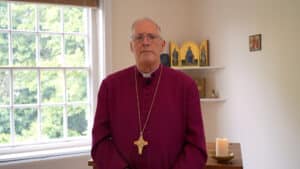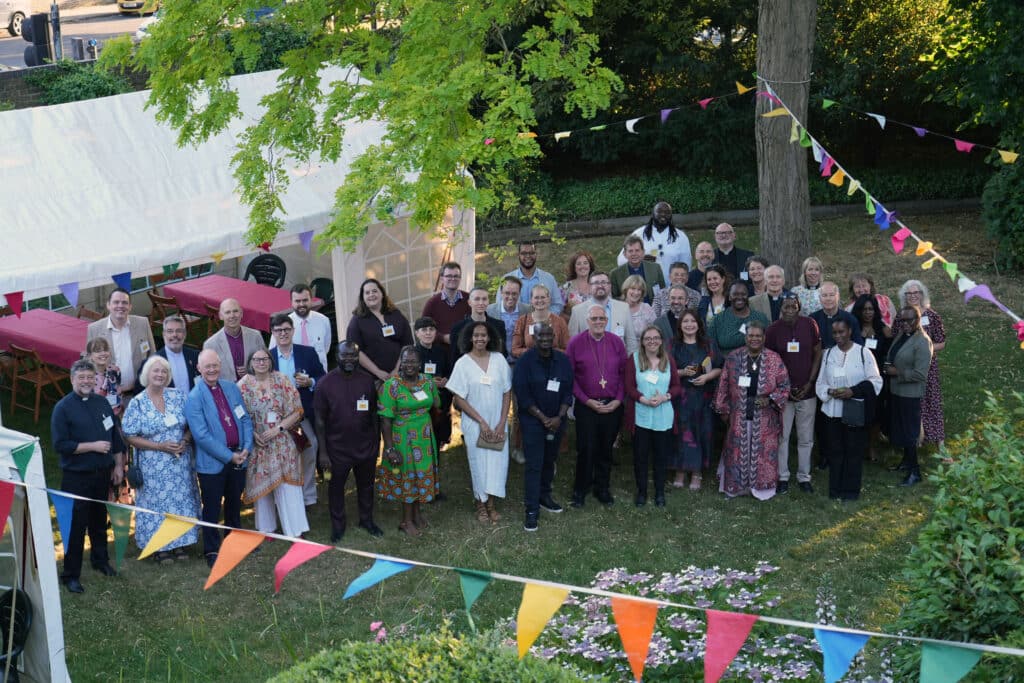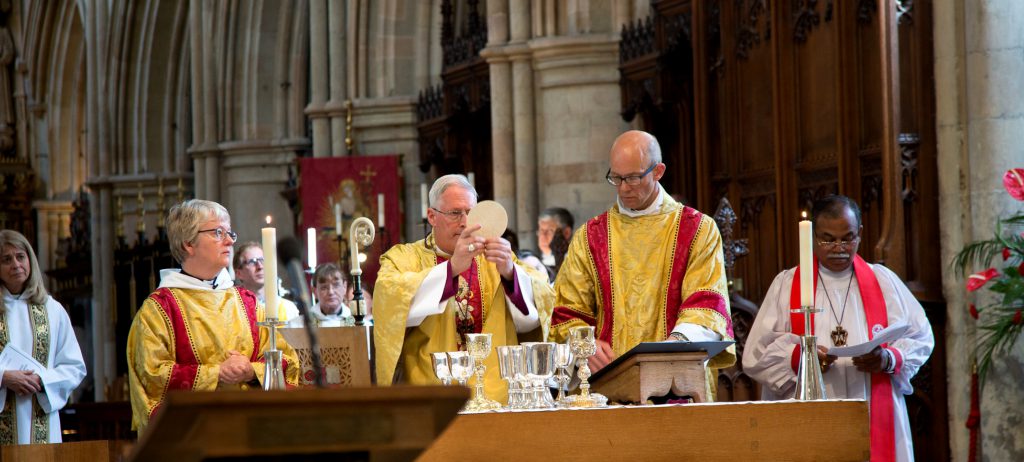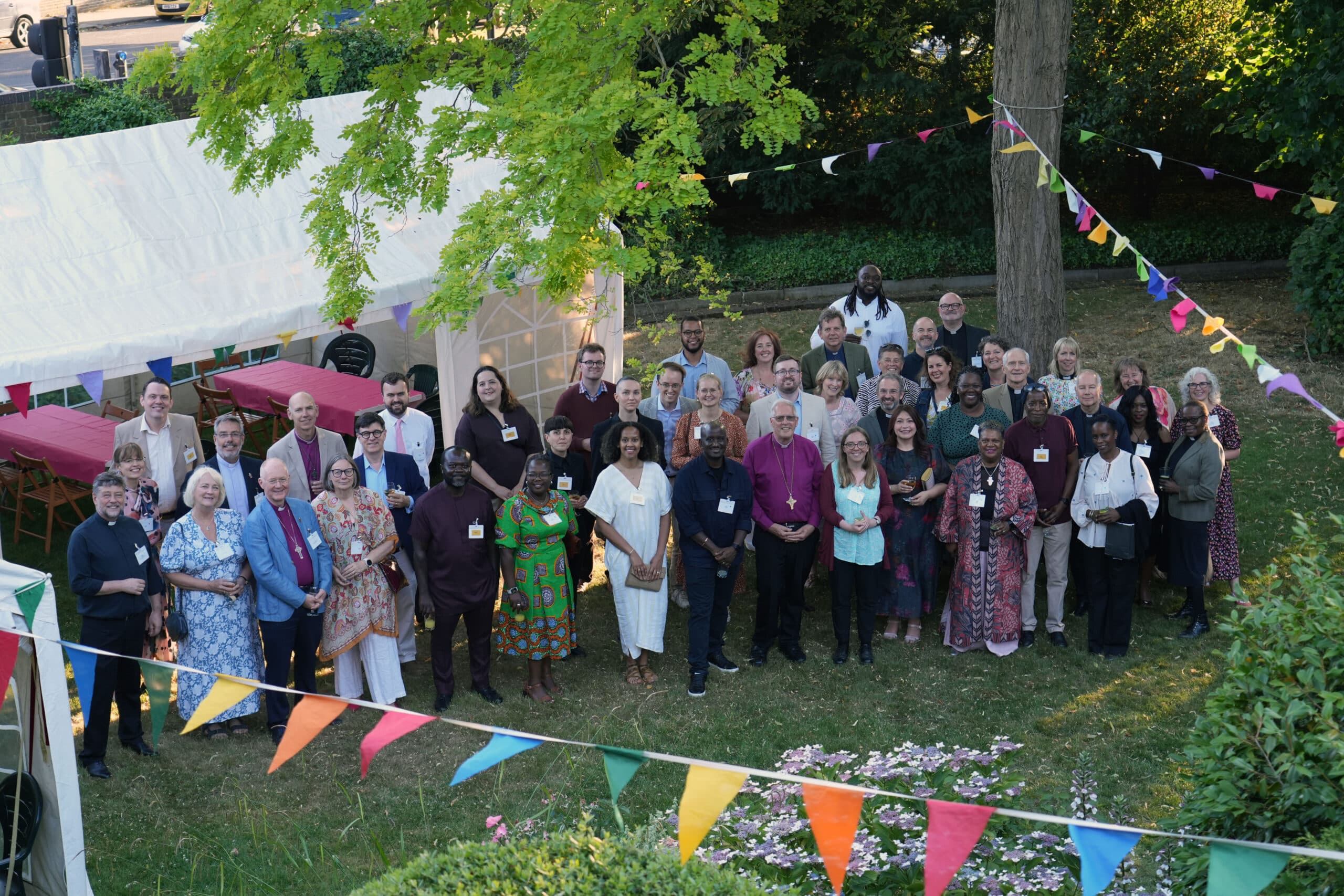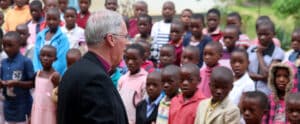
Bishop Christopher addresses young pupils at the Bonda Mission in the Diocese of Manicaland.
Some orphaned children are looked after by their family members and others are in orphanages at Mission Stations, or are helped by the Mothers’ Union. Mission Stations, such as Daramombe in the Diocese of Masvingo, provide medical care and offer education to those in local communities. While Mission Stations can provide housing to orphaned children, they cannot afford the costs of providing professional care. Relatives and caregivers – many of whom are members of the Anglican churches in the Dioceses – do not have the specialist knowledge and experience to support the children through their traumas and enable them to begin to heal. That is why the Anglican Council of Churches in Zimbabwe is hoping to be able to offer more help to children who are looked after in orphanages, by the Mothers’ Union or relatives.
Elizabeth’s story
Elizabeth was abandoned by her mother in the bush soon after she was born. When she was discovered, she was taken to the police and handed over to the Social Welfare services. She had nothing to identify her and her mother was never found. She was taken to an orphanage and looked after by nuns and caregivers there until she became an adult.
Although Elizabeth felt cared and provided for, life in the orphanage is not easy. She was resilient but others were less so and became involved in sexual relationships with the boys in the orphanage. Children were sexually abused both in and outside the orphanage and many have been traumatised by all that they have experienced.
When Elizabeth was of an age to marry there were difficulties with her husband-to-be’s family over the ‘bride price’ – a sum of money which is traditionally paid by the groom’s family. There were also worries about who she might be related to because her family was not known and no one could be sure that it was acceptable for them to marry. Elizabeth’s husband-to-be stood by her and worked to overcome any challenges, but life remained hard, even when they were married.
Elizabeth told the Chaplain at the Mission Station that getting married as an orphan is very difficult because of some of the traditional practices in Zimbabwean culture, as well as other concerns. Leaving the orphanage after living in an institution all their lives and going to live with or near a new family is also challenging.
The Zimbabwean Council of Churches wants to be able to offer help to those leaving care to enable them to feel less vulnerable. Despite being married with a supportive husband, Elizabeth remains very emotional and sensitive because of her experiences and sensitive because of her experiences and says she feels vulnerable all the time.
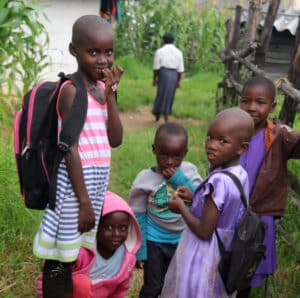
Bonda Mission pupils enjoy themselves after school.
Simon’s Story
Simon’s mother became pregnant whilst staying in a village in the Nyanga District, in Manicaland. She lived with her mother who returned to the District after getting divorced. Simon’s mother was thought to have educational difficulties and when he was born, he was sent to an orphanage. Unknown to Simon, his mother died a couple of years later. Simon’s relatives thought he had died too, as no one knew where he lived.
Simon’s life in the orphanage was not an easy one. He became disruptive and began smoking and drinking while still living there. His behaviour led the nuns who had been looking after him to realize that he had become addicted. He was transferred to Mutare Probation services to help him to manage his addiction and his behaviours. Simon and his carers blame each other for what happened to him and how he grew up. Such situations are difficult, and it is here that psychological support might have been able to help Simon in this situation.
It transpired that the village knew who Simon’s father was, but his father refused to accept him because he did not have a career. At 43, Simon is not married, and he has not yet reached a point in his life where he can support himself or become free from addiction.
These are just two of the many stories of orphaned children in Zimbabwe. The Anglican Council of Churches in Zimbabwe wants to offer psychological services to orphanages to support children and those who work with them during their time of greatest need.
We hope that you will feel encouraged to support this vital work to help traumatised and distressed children grow into well balanced adults. Find out more and how to donate: https://southwark.anglican.org/lent-call/






